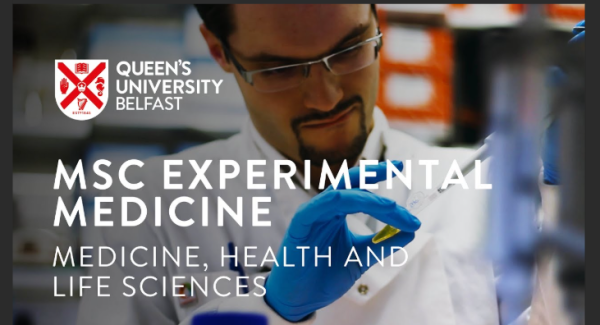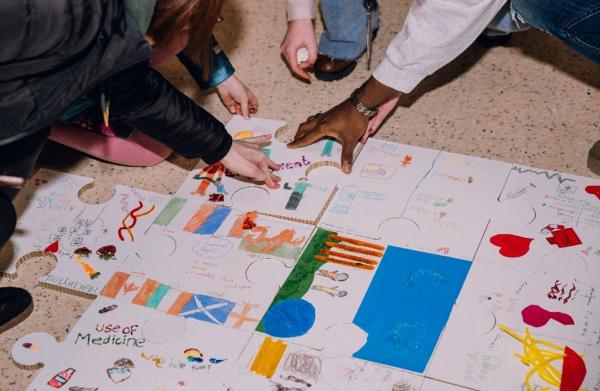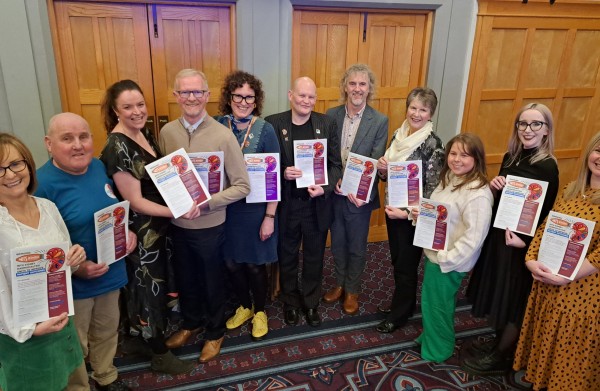As part of the PPI Ignite Network’s National PPI Festival 2024, Queen’s University Belfast’s Personal and Public Involvement (PPI) Network, Ulster University and the Northern Ireland Public Health Research Network (NIPHRN) came together to organize an event on “Creative Communications: Hearing the Voice of Everyone”. The event took place on Wednesday 16th October 2024 at Queen’s University Belfast and welcomed guest speakers from University College Dublin (UCD) and University of Southampton, as well as local speakers from Ulster University, Queen’s University Belfast and the Public Health Agency. The event was attended by 35 people, with representation from PPI contributors, patients and carers, Health and Social Care Northern Ireland (HSCNI), academic researchers, PPI professionals and advocates from various sectors.
After a warm welcome from Professors Alan Stitt and Mark Tully, the event kicked off with a talk from Professor Thilo Kroll (UCD), who spoke about the importance of a “systems-based approach” and “design-thinking” in PPI research and practice. Miss Olatundun Gafari from the University of Southampton spoke about her research into how to best engage UK ethnic minority communities in research and how to build meaningful and sustainable relationships with these groups. The second session of the day focused on local PPI activity. Professor Gerry Gormley and Dr. Linda Ni Chianáin from the Centre for Medical Education at Queen’s University Belfast gave a stimulating talk on the use of simulation in medical education. Dr. Jean Daly-Lynn, Dr. Katy Pedlow and Susan Croy followed with an overview of a co-design project that was undertaken between Ulster University and Cedar to enhance PPI involvement in learning and teaching. The final speaker of the day was Dr. Alan McMichael, from the Public Health Agency (PHA). Dr. McMichael spoke of measures being taken at the Research and Development division of the PHA to help streamline the PPI process for all people involved. The event concluded with an open discussion with all invited speakers and event attendees. Interesting discussion points that arose out of his session included how to facilitate sustained PPI, how to evaluate PPI, the importance of wellness practices in PPI and how PPI allows for people with lives experiences to be “advocates for change”.
All speaker presentations were very well received by attendees and post-event evaluations indicated that the content of the program was “well-balanced”, covered “a range of expertise”. Speaking to their overall impression of the event, one attendee remarked that “the event promoted a sense of empowerment and patient value which builds confidence and gives hope and optimism for the future”. The organising committee, encouraged by this positive feedback, look forward to hosting similar events in the near future.
Related Articles


